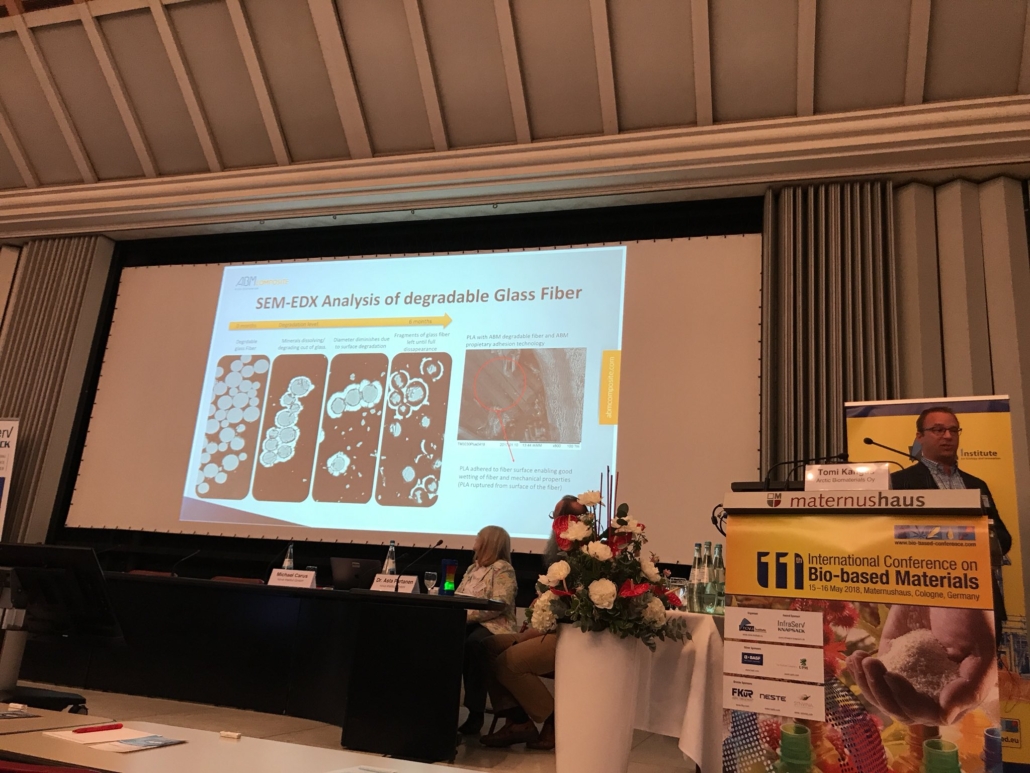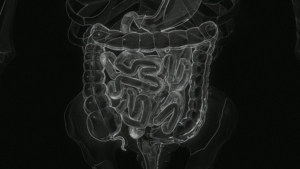
Biomaterials growth and crash side by side
Bioeconomy industry experts gave a mixed outlook for biomaterials in mid-May in Cologne where about 200 stakeholder joined the 11th International Conference on Bio-based Materials.
According to the organisers from nova-Institute around Michael Carus, who presented its most recent market report during the event, capacities of bio-based polymers continue to grow moderately at around 3-4% annually at about the same rate as petrochemical polymers. However, deeper insights revealed that there is strong growth and good prospects in some areas such as PLA, PEF or PTF. Only recently, for instance, US-based Archer Daniels Midland and DuPont Industrial Biosciences announced one of the world’s first bio-based furan dicarboxylic methyl ester (FDME) pilot production facility in ADM’s Decatur, Illinois site. FDME is a building block molecule derived from fructose that can be used in various chemicals and materials production including plastics such as polytrimethylene furandicarboxylate (PTF). However, in other biochemical market segments experts observe virtually collapsing developments and the imminent insolvency of US-based company BioAmber and its subsidiaries in Canada, announced in the beginning of May, is a sign of this trend.
The more than 30 speakers during the two-day conference in Cologne underlined that there is a range of companies with solutions that offer competitive advantages. Jukka Kantola from Kaicell Fibres, for instance, informed the audience about new plans from the forest industry to enter the textiles market in which there is a high demand for bio-based and sustainable fibers. Policy initiatives were identified as another important push factor in the biomaterials arena. If China, for instance, further pushes forward a stricter environmental regulation, it could have a large influence on the whole sector, Doris de Guzman from Tecnon Orbichem said.
Marcel Lubben from Reverdia, a joint venture of DSM and Roquette, pointed out the need for staying power. We are growing slower than expected, because it took us a decade to set up the final industrial processes. But now we found our markets in a broad spectrum of applications, in particular by offering superior benefits and high performance for the clients, ranging from compostable coffee cups to durable bio-based materials for trekking shoes. From this position, we are looking to further expand our business in the future. From his perspective, the right timing of building large-scale facilities is crucial within this price-sensitive and competitive sector: We have learned with our plant in Italy, that a large-scale production facility should be well prepared and not started too early.
As a traditional part of the conference the annual Innovation Award – Bio-based Material of the Year ceremony was awarded in Cologne. Out of six finalists, Arctic Biomaterials won the first price for its ArcBiox material. The Finish company combines a special glass material with other bioplastics such as PLA using long fiber technology. Together, a robust and flexible reinforced biomaterial is obtained which is usable for various technical applications such as consumer electronics. The highest advantage of our material is that it erodes back to harmless minerals in composting environment if needed and this adds an end of life perspective to bioplastics, Marketing Director Tomi Kangas explained. He also said, that the material was used first in the medical product area to have a self-degradable implant material for the closure of fractures. Now, the company aims at offering ArcBiox for technical applications on a global market. Some collaborations with large corporations such as Volvo, Ikea or Logo already exist. By the end of 2018, an industrial scale plant in China will be finished. We decided to set up there, because of the high market demand for bioplastics in China, Kangas said.



 Unsplash+
Unsplash+